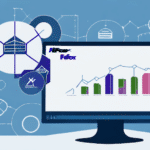Comparing Odoo ERP and Epicor ERP: Which is Right for Your Business?
In today's competitive business landscape, selecting the right Enterprise Resource Planning (ERP) system is crucial for streamlining operations and managing resources effectively. With numerous ERP vendors available, the decision can be overwhelming. This comprehensive comparison between Odoo ERP and Epicor ERP aims to provide in-depth insights to help you make an informed choice tailored to your business needs.
Understanding ERP Systems
What is an ERP System?
An ERP system is an integrated software platform designed to automate and manage core business processes, including finance, manufacturing, human resources, and customer relationship management. The primary goal of ERP systems is to centralize data, enhance efficiency, reduce costs, and improve decision-making through real-time analytics.
Benefits of Implementing an ERP System
- Improved Productivity: Automation of routine tasks allows employees to focus on strategic initiatives.
- Cost Reduction: Streamlined processes and better resource management lead to significant cost savings.
- Enhanced Decision-Making: Real-time data and comprehensive reporting tools provide valuable business insights.
- Scalability: ERP systems can grow with your business, accommodating increasing data and user demands.
According to a Gartner report, organizations that implement ERP systems experience an average of 20-30% improvement in operational efficiency.
Overview of Odoo ERP
What is Odoo ERP?
Odoo ERP is an open-source ERP system that offers a comprehensive suite of business applications, including finance, sales, project management, and inventory management. Its modular architecture allows businesses to select and implement only the functionalities they need, making it highly customizable and adaptable to various industries.
Key Features of Odoo ERP
- Finance and Accounting: General ledger, accounts payable/receivable, budgeting, and tax management.
- Sales and Marketing: Lead management, sales order processing, and campaign management.
- Inventory Management: Product management, inventory control, and shipping management.
- Project Management: Task management, timesheets, and project planning.
- Customer Relationship Management (CRM): Lead acquisition, customer support, and marketing automation.
- Human Resources: Employee management, payroll processing, and benefits administration.
With over 4 million users worldwide and a vibrant community of developers, Odoo ERP is continuously evolving to meet the dynamic needs of modern businesses.
Overview of Epicor ERP
What is Epicor ERP?
Epicor ERP is a robust ERP solution designed for businesses of all sizes across various industries, including manufacturing, distribution, retail, and services. It offers a wide array of functionalities such as financial management, supply chain management, production management, and project management, supplemented by advanced features like predictive analytics and Internet of Things (IoT) integration.
Key Features of Epicor ERP
- Financial Management: Accounts payable/receivable, cash management, and budgeting.
- Supply Chain Management: Procurement, inventory management, and demand planning.
- Production Management: Production scheduling, shop floor control, and quality control.
- Project Management: Budgeting, project planning, and resource management.
- Service Management: Customer service, field service management, and warranty management.
- Reporting and Analytics: Custom reports and dashboards for actionable business insights.
Epicor ERP is known for its scalability and ability to handle complex operations, making it a preferred choice for large enterprises.
Feature and Functionality Comparison
Customization and Flexibility
Odoo ERP excels in flexibility with its modular approach, allowing businesses to customize the system extensively without significant coding expertise. This makes it ideal for companies with unique processes or evolving needs.
Epicor ERP, while offering robust functionalities, has a more standardized structure. Customization often requires technical expertise, which may be a consideration for businesses seeking rapid adaptability.
Integration Capabilities
Both Odoo and Epicor ERP offer extensive integration capabilities. Odoo integrates seamlessly with various third-party applications, including e-commerce platforms and marketing tools. Epicor ERP provides strong integration with other enterprise systems like CRM and HR platforms, ensuring smooth data flow across all business functions.
Scalability
Odoo ERP's modular design allows businesses to scale by adding modules as needed, making it suitable for growing small to medium-sized enterprises. In contrast, Epicor ERP is built to handle large-scale operations and can efficiently manage complex, multi-location businesses, making it ideal for large enterprises.
Ease of Use
User Interface and Accessibility
Odoo ERP offers a highly intuitive and user-friendly interface with drag-and-drop features, enabling users to navigate the system with minimal training. Its modern design enhances user experience and adoption rates.
Epicor ERP, while comprehensive, has a steeper learning curve due to its extensive functionalities. However, it provides robust training and support resources to help users become proficient.
Mobile Accessibility
Odoo ERP includes a mobile app, allowing users to access the system on-the-go, which is particularly beneficial for businesses with remote or field-based employees. Epicor ERP lacks a dedicated mobile app, which may limit accessibility for some users.
Implementation and Cost
Implementation Process
Odoo ERP boasts a shorter implementation timeline thanks to its modular approach. Businesses can start with essential modules and expand functionality as they grow, resulting in lower initial costs and greater flexibility.
Epicor ERP typically requires a more detailed and time-consuming implementation process due to its comprehensive and standardized system architecture. This can lead to higher upfront costs, especially for smaller businesses.
Pricing Models
Odoo ERP follows a modular pricing structure, allowing businesses to pay only for the modules they need. This makes it a cost-effective option for small to medium-sized enterprises.
Epicor ERP employs a traditional licensing model, where businesses pay for the entire suite of features. While this can be more expensive, it offers a complete solution for large enterprises with extensive requirements.
Support and Maintenance
Odoo ERP Support
Odoo offers comprehensive support through its official website and community forums. Additionally, commercial support options are available for businesses requiring dedicated assistance.
Epicor ERP Support
Epicor provides extensive support services, including training, implementation, and optimization. Their support is available 24/7, ensuring that businesses receive timely help when needed.
User Reviews and Ratings
Both Odoo ERP and Epicor ERP have garnered positive feedback from users. Odoo ERP is praised for its affordability, flexibility, and ease of use, making it popular among small to medium-sized businesses. Epicor ERP receives commendations for its comprehensive features, scalability, and robust support services, which are highly valued by large enterprises.
According to Capterra, Odoo ERP holds a rating of 4.3 out of 5 stars based on user reviews, while Epicor ERP has a rating of 4.0 out of 5 stars.
Which ERP is Best for Your Business?
Choosing Odoo ERP for Small and Medium-Sized Businesses
Odoo ERP is an excellent choice for small to medium-sized businesses seeking an affordable, flexible, and scalable solution. Its modular pricing and ease of customization allow businesses to tailor the system to their specific needs without incurring high costs.
Choosing Epicor ERP for Large Enterprises
For large enterprises with complex operations and multiple locations, Epicor ERP is the more suitable option. Its comprehensive feature set, scalability, and robust support services cater to the intricate requirements of sizable organizations.
Conclusion: Making the Right ERP Choice
Selecting the appropriate ERP system hinges on your business's size, complexity, and specific needs. Odoo ERP offers a flexible, cost-effective solution ideal for small to medium-sized businesses looking for customization and scalability. In contrast, Epicor ERP provides a comprehensive, scalable platform suited for large enterprises requiring extensive functionalities and robust support. Carefully assess your organization's requirements, budget, and growth prospects to choose the ERP system that best aligns with your strategic goals.



















